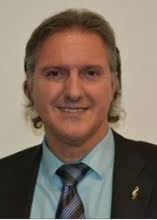
IEEE Sensors Council Gujarat Section

IEEE Sensors Council Gujarat Section
Bio/Nano/CMOS for memristive sensing
Abstract: In this Distinguished Lecture, the very best worldwide ever-reported electrochemical biosensors based on a memristive effect and aptamers or antibodies are presented. These novel sensing devices are developed to propose a completely new approach in the co-design of Bio/Nano/CMOS interfaces for cancer diagnostics. In this research, affinity-based techniques are presented for the detection of the prostate specific antigen (PSA) and the Vascular Endothelial Growth Factor (VEGF). The hysteretic properties of memristive silicon nanowires functionalized with proper biomolecules provide a label-free and ultrasensitive bio-detection technique. In order to develop full systems for diagnostics, the integration with CMOS frontend, in one side of the interface, and microfluidics, in the other side, is required too. Therefore, this lecture also discusses novel circuit approaches for an automated and quick characterization of arrays of memristive biosensors. One memristive parameter, the width of the voltage gap, is directly proportional to the target molecules concentration. Thus, CMOS readouts acquiring such width, meanwhile sorting-out faulty devices, i.e. nonconducting nanowires in the array, are presented together with analog-to-digital conversion for the acquired voltage gap. A prototype of these circuits is shown as an example of design in 0.35μm CMOS technology. The integration of the CMOS readout with the nanoscale sensors and a microfluidic platform is a must for the design of robust biosensing-systems for quick data acquisition in cancer diagnostics. Therefore, the development of an improved chip-platform for cancer diagnostics based on nanofabricated Memristive Biosensors integrated, for the first time, with a microfluidic structure is also presented in this lecture by also addressing critical issues, e.g., the problems related to long connections between the Memristive Biosensors and the CMOS frontend.

Speaker: Sandro Carrara
Affiliation: EPFL, Switzerland and DL Speaker of IEEE Sensors Council
Venue: DA-IICT, Gandhinagar
Bio: Sandro Carrara is an IEEE Fellow for his outstanding record of accomplishments in the field of design of nanoscale biological CMOS sensors. He is also the recipient of the IEEE Sensors Council Technical Achievement Award in 2016 for his leadership in the emerging area of co-design in Bio/Nano/CMOS interfaces. He is a faculty member (MER) at the EPFL in Lausanne (Switzerland). He is former professor of optical and electrical biosensors at the Department of Electrical Engineering and Biophysics (DIBE) of the University of Genoa (Italy) and former professor of nanobiotechnology at the University of Bologna (Italy). He holds a PhD in Biochemistry & Biophysics from University of Padua (Italy), a Master degree in Physics from University of Genoa (Italy), and a diploma in Electronics from National Institute of Technology in Albenga (Italy). His scientific interests are on electrical phenomena of nano-bio-structured films, and include CMOS design of biochips based on proteins and DNA. Along his carrier, he published 7 books, one as author with Springer on Bio/CMOS interfaces and, more recently, a Handbook of Bioelectronics with Cambridge University Press. He also published more than 200 scientific papers and is author of 12 patents. He is now Editor-in-Chief (Associate) of the IEEE Sensors Journal; he is also founder and Editor-in-Chief of the journal BioNanoScience by Springer, and Associate Editor of IEEE Transactions on Biomedical Circuits and Systems. He is a member of the Board of Governors (BoG) of the IEEE Circuits And Systems Society (CASS). He is member at large of the IEEE Sensors Council. He has been appointed as IEEE Sensors Council Distinguished Lecturer for the years 2017-2019, and CASS Distinguished Lecturer for the years 2013-2014. His work received several international recognitions: several Top-25 Hottest-Articles (2004, 2005, 2008, 2009, and two times in 2012) published in highly ranked international journals such as Biosensors and Bioelectronics, Sensors and Actuators B, IEEE Sensors journal, and Thin Solid Films; a NATO Advanced Research Award in 1996 for the original contribution to the physics of single-electron conductivity in nano-particles; three Best Paper Awards at the IEEE PRIME Conference in 2015 (Glasgow), in 2010 (Berlin), and in 2009 (Cork), a Best Poster Award at the Nanotera workshop in 2011 (Bern), and a Best Poster Award at the NanoEurope Symposium in 2009 (Rapperswil). He also received the Best Referees Award from the journal Biosensor and Bioelectronics in 2006. From 1997 to 2000, he was a member of an international committee at the ELETTRA Synchrotron in Trieste. From 2000 to 2003, he was scientific leader of a National Research Program (PNR) in the filed of Nanobiotechnology. He was an internationally esteemed expert of the evaluation panel of the Academy of Finland in a research program for the years 2010-2013. He has been the General Chairman of the Conference IEEE BioCAS 2014, the premier worldwide international conference in the area of circuits and systems for biomedical applications.

